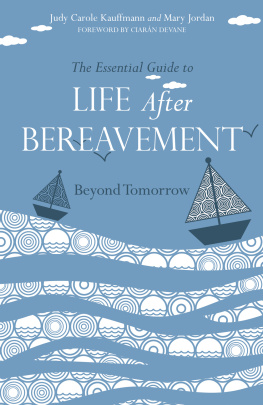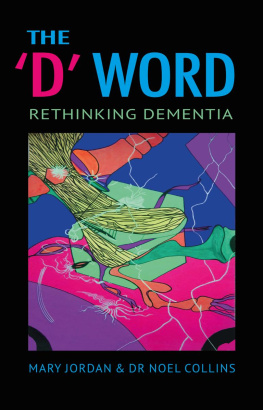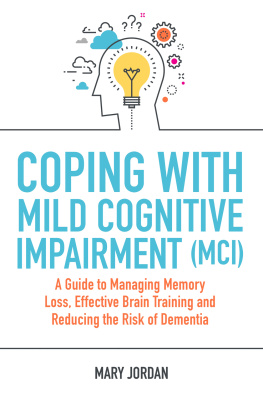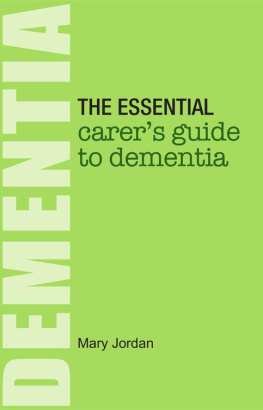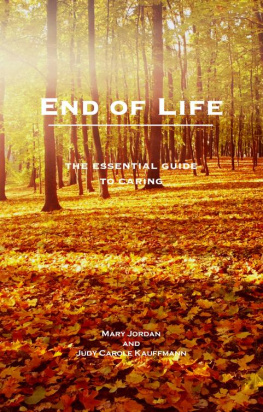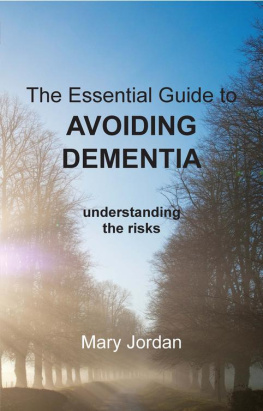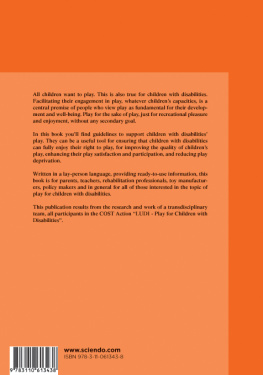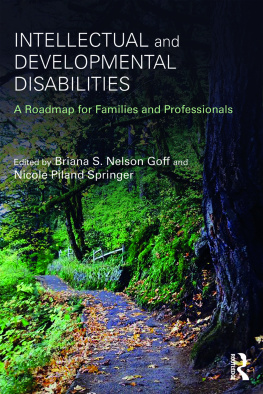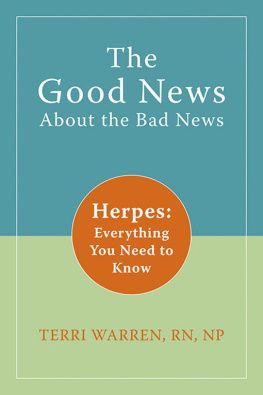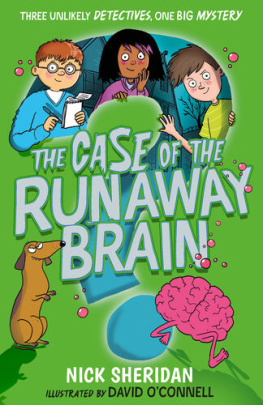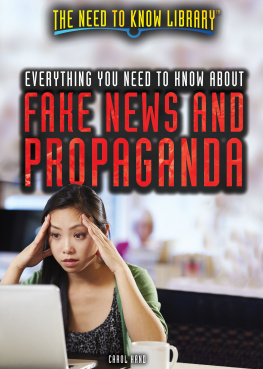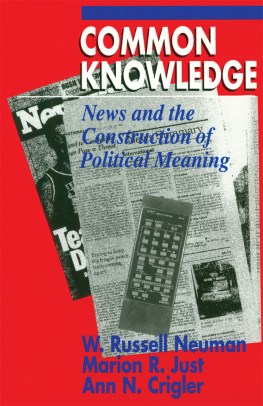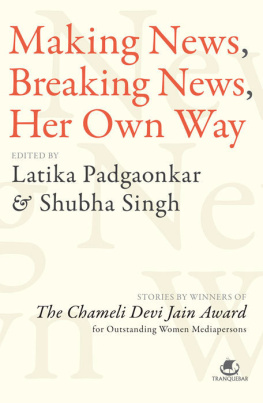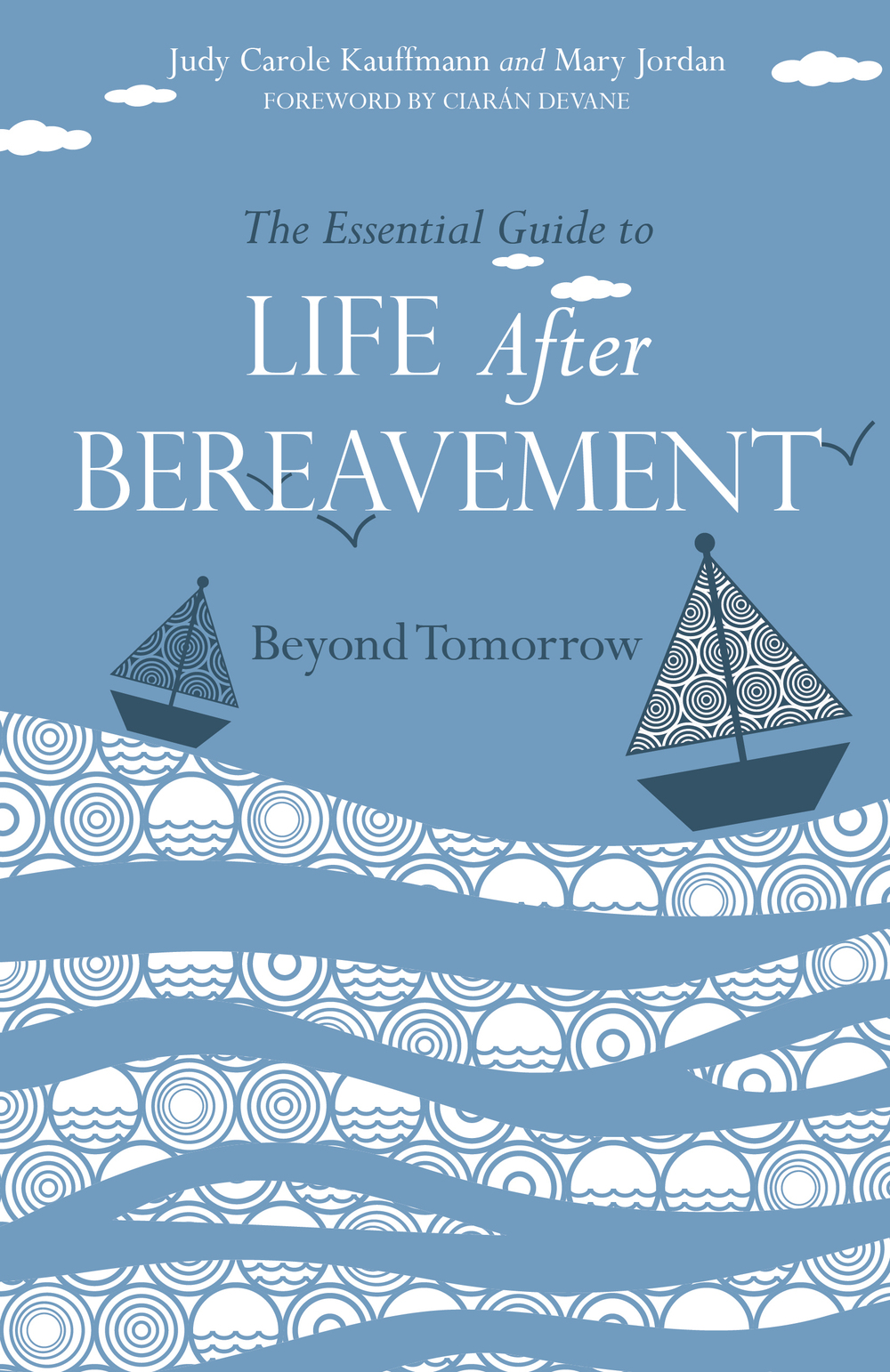
The Essential Guide to Life After Bereavement
of related interest
How to Break Bad News to People with Intellectual Disabilities
A Guide for Carers and Professionals
Irene Tuffrey-Wijne
Foreword by Professor Baroness Sheila Hollins
ISBN 978 1 84905 280 1
eISBN 978 0 85700 583 0
After the Suicide
Helping the Bereaved to Find a Path from Grief to Recovery
Kari Dyregrov, Einar Plyhn and Gudrun Dieserud
Foreword by John R. Jordan
ISBN 978 1 84905 211 5
eISBN 978 0 85700 445 1
Communicating with Children When a Parent is at the End of Life
Rachel Fearnley
ISBN 978 1 84905 234 4
eISBN 978 0 85700 475 8
What Does Dead Mean?
A Book for Young Children to Help Explain Death and Dying
Caroline Jay and Jenni Thomas
Illustrated by Unity-Joy Dale
ISBN 978 1 84905 355 6
eISBN 978 0 85700 705 6
Children Also Grieve
Talking about Death and Healing
Linda Goldman
ISBN 978 1 84310 808 5
eISBN 978 1 84642 471 7
Great Answers to Difficult Questions about Death
What Children Need to Know
Linda Goldman
ISBN 978 1 84905 805 6
eISBN 978 1 84642 957 6
The Essential Guide to
LIFE After
BEREAVEMENT
Beyond Tomorrow
Judy Carole Kauffmann and Mary Jordan
Foreword by Ciarn Devane

Jessica Kingsley Publishers
London and Philadelphia
First published in 2013
by Jessica Kingsley Publishers
73 Collier Street
London N1 9BE, UK
and
400 Market Street, Suite 400
Philadelphia, PA 19106, USA
www.jkp.com
Copyright Judy Carole Kauffmann and Mary Jordan 2013
Foreword copyright Ciarn Devane 2013
Front cover image source: Shutterstock. The cover image is for illustrative purposes only, and any person featuring is a model.
All rights reserved. No part of this publication may be reproduced in any material form (including photocopying or storing it in any medium by electronic means and whether or not transiently or incidentally to some other use of this publication) without the written permission of the copyright owner except in accordance with the provisions of the Copyright, Designs and Patents Act 1988 or under the terms of a licence issued by the Copyright Licensing Agency Ltd, Saffron House, 610 Kirby Street, London EC1N 8TS. Applications for the copyright owners written permission to reproduce any part of this publication should be addressed to the publisher.
Warning: The doing of an unauthorised act in relation to a copyright work may result in both a civil claim for damages and criminal prosecution.
Library of Congress Cataloging in Publication Data
Carole Kauffmann, Judy.
The essential guide to life after bereavement : beyond tomorrow / Judy Carole Kauffmann and Mary Jordan ; foreword by Ciaran Devane.
pages cm
Includes bibliographical references and index.
ISBN 978-1-84905-335-8 (alk. paper)
1. Bereavement. 2. Loss (Psychology) 3. Death. I. Jordan, Mary, 1951- II. Title.
BF575.G7C375 2013
155.937--dc23
2013005838
British Library Cataloguing in Publication Data
A CIP catalogue record for this book is available from the British Library
ISBN 978 1 84905 335 8
eISBN 978 0 85700 669 1
Acknowledgements
The case stories in this book have come from many sources and not everyone wished to have their names mentioned.
We would like to thank all those who have generously shared their stories and their areas of expertise with us. They have no idea how much it is appreciated. We would like to thank: Faith Warn, Alex Carpenter, Jeremy Ornellas, Geraldine White, Vikki Allport de Orbe, Bobbie Sylvestre, Joan Hughes, Nancy Bank, the inspirational managers from Inglewood Liz Hayes and Becky Morris, April Olins, Diane Hardiman, Dr. Shirley Holton, Ori Kauffmann, Patricia almer, Christine Parsons, Bernadette Losasso, Peter Palmer, Rauf and Tristram Jordan and Erica Arnold, our family and friends who gave us love and support and of course Ciaran Devane who wrote our foreword.
Our thanks must also go to Rachel Menzies our editor for her help and advice.
Foreword
Bereavement is one of the most common of human experiences. But surprisingly for such a common experience, it is often unnecessarily traumatic. The loss of a close relative or friend will never be less than painful. Perhaps it should never be less than painful. However, the short- and long-term trauma which we see so regularly is often beyond what is acceptable.
Over a hundred years ago a young civil servant founded what is now Macmillan Cancer Support. He did so because of the trauma he himself suffered when his father died of cancer. A hundred years ago a death from cancer was often painful and undignified a bad death. The young Douglas Macmillan set up the charity to help people with cancer to die well.
Sudden death, by trauma or a catastrophic health episode, can be the hardest of all. The shock, the lack of time to prepare, the practical and emotional crises they cause must be amongst the most difficult to dealt with. Helping in that situation is all the more critical.
However, most deaths are less sudden. There is time for individuals to plan, for their friends and family to prepare and for the services supporting them to put the right measures in place. And that is the first lesson in managing bereavement. It is so much easier if the death itself is calm and pain free. Helping people to have a good death, ideally at the place of their choosing, has to be a priority for those of us working in the field.
It goes without saying that support should not be withdrawn the instant someone dies. The feeling of abandonment when everyone packs up, goes home or moves on is acute. A carer who has invested so much for someone they love is never more alone than at that point.
Organizations such as Macmillan and Cruse Bereavement Care do provide bereavement support through our professionals and our support line. While we provide this to many thousands of people, we know there are many more who we do not reach. One of our challenges is to let people know we are there, in person, on the Macmillan Support Line, on our online community. But of course we also seek to help people help themselves by providing information to help people help themselves and help others.
Which is also where The Essential Guide to Life After Bereavement: Beyond Tomorrow comes in. Many of the things which cause problems on bereavement are common and can benefit from the lessons and experience of others. How to deal with personal effects, how to cope with the poor behaviour of others, how to talk about the death. All are things which many have experienced and often people have developed insight which has helped them and which they are happy to share.
My own example is from when Katy, my wife, died. The most useful advice was from my mother who advised me to get the firsts over with. Some firsts look after themselves. The first birthday, the first Christmas, the first wedding anniversary. Others do not. The first visit to the favourite restaurant, the first holiday, the first time to meet some friends. My mothers advice was to get them out of the way on the sensible basis that second time is easier and putting things off only makes them more frightening.
Such practical but insightful advice is the basis of this book. It is written from experience and from listening to others. Whatever your role and whatever loss you are experiencing, I hope there is something in it which makes things that bit less painful, that bit sooner. Please read it and take from it what is helpful to you and know there are many of us out there who did bounce back and who wish the same for you.
Next page
